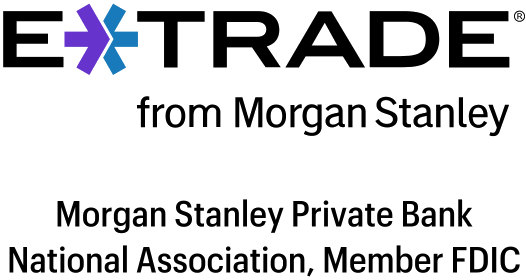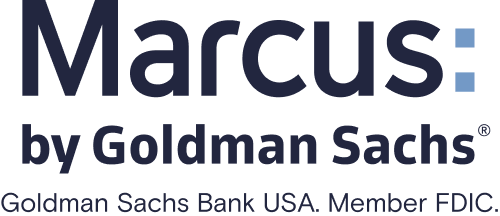Blocked From Getting a Bank Account? Learn About ChexSystems
If you've had banking problems, ChexSystems will alert other banks about them for up to five years. Opening new accounts could be tough. Prepaid cards or second-chance checking could help.

Many, or all, of the products featured on this page are from our advertising partners who compensate us when you take certain actions on our website or click to take an action on their website. However, this does not influence our evaluations. Our opinions are our own. Here is a list of our partners and here's how we make money.
ChexSystems is a reporting agency that banks use to track people who have had issues with their bank account.
ChexSystems retains consumer records for up to five years.
Second-chance checking accounts are an option for people who otherwise can’t get a bank account.
If you've been denied a bank account, it might be because you’ve been reported to ChexSystems, a consumer reporting agency that’s covered by the federal Fair Credit Reporting Act. When you apply for a new account, many banks use ChexSystems to see if a previous bank has flagged you for unpaid balances such as overdraft fees. If you are in ChexSystems, it can impact their decision to approve you for an account.
Being in ChexSystems can be challenging, but there are still ways to get a bank account while you wait for the information to fall off of your record after five years. Read on for more information about ChexSystems and what options may be available to you.
» Fix your ChexSystems record with these five steps
What is ChexSystems?
ChexSystems is a national consumer reporting agency that keeps track of people who have gotten in trouble with their bank – for example, by bouncing a check or not paying an overdraft fee. Banks and credit unions can use ChexSystems to check out potential customers.
» MORE: Best banks for overdrafts

on Chime®'s website
Chime® Checking Account

N/A
$0

Member FDIC
Varo Bank Account

N/A
$0
E*TRADE Max-Rate Checking

2.00%
$15
How does ChexSystems work?
A bank or credit union will review an applicant's ChexSystems report. According to a 2015 report — the most recent year the data was available — more than 80% of banks and credit unions use consumer reports from agencies such as ChexSystems or Early Warning Services to help them decide whether to approve bank account applicants, according to the National Consumer Law Center.
» Looking for options? See which banks don't use ChexSystems
The review process is akin to applying for a credit card. A card issuer generally goes through at least one major credit reporting bureau to check your credit. This process helps the issuer determine if you could be a risky customer for a new credit card. (Some banks look at your credit score when you apply for a bank account, too. Get your score free from NerdWallet.)
Banks and credit unions share information about these individuals and whether the institution closed their accounts. In return, the agency collects these consumer histories and creates risk scores and reports for banks to use as they consider potential customers.
ChexSystems provides the following information to banks and credit unions:
Risk score: ChexSystems Consumer Scores range from 100 to 899. The higher your score, the better, as high scores indicate that you may be a less risky customer.
Report: The report — or "Consumer Disclosure," as ChexSystems calls it — shows items such as unpaid fees (primarily from overdrafts), checks bounced at retailers and suspected fraud. Reports also list credit inquiries, check orders and consumer-initiated security freezes. If you have been a victim of identity theft, you can place a freeze on your ChexSystems consumer report, like you can do with the major credit bureaus. This helps ensure no new financial accounts are opened in your name without authorization.
Individuals can request their score and report. You can request your score and report from the agency, but a ChexSystems report is more useful. It gives you context for why a bank might've rejected you, and you can get one copy free every year. To request the report online, fill out this consumer disclosure form on the official ChexSystems website.
You'll generally receive the report by mail within five business days. But there might not be much in your report, and that’s a good thing: Unlike credit reports, ChexSystems focuses mostly on negative account history.
How long do you stay on ChexSystems?
Usually five years. Although federal regulations allow ChexSystems to keep records for up to seven years, the agency keeps them for five.
If you review your report and see any incorrect or out-of-date information, you can also submit a dispute on ChexSystems' website and with your financial institution.
Can I get a bank account if I’ve been denied?
Yes, you can get a bank account even if you’re on ChexSystems. Having a history on ChexSystems doesn’t necessarily mean you won’t have access to a checking or other account for the next five years.
Some banks and credit unions offer so-called second chance checking accounts. Although these typically come with monthly fees, customers often can move to less costly regular checking accounts after successfully managing second chance checking for a year or two.
“Bank or credit union managers often have the authority to grant account privileges in spite of negative ChexSystems reports,” says Rob Drury, executive director of the Association of Christian Financial Advisors. In addition, you could try opening an account at a credit union, he says: “Some do not subscribe to ChexSystems.”
» Learn more: How ex-offenders can rebuild with a bank account
You can also dispute your report. Consumers can dispute the accuracy of their file with the financial institution that reported them to ChexSystems, and consumers can also submit a dispute with ChexSystems itself.
Consider other alternatives. You also could opt for a prepaid debit card that has low fees and strong protections.
Being denied a bank account because of a negative ChexSystems report or low consumer score isn’t the end of the world. Understanding how the process works and what your current account options are can help you progress toward better money management.













